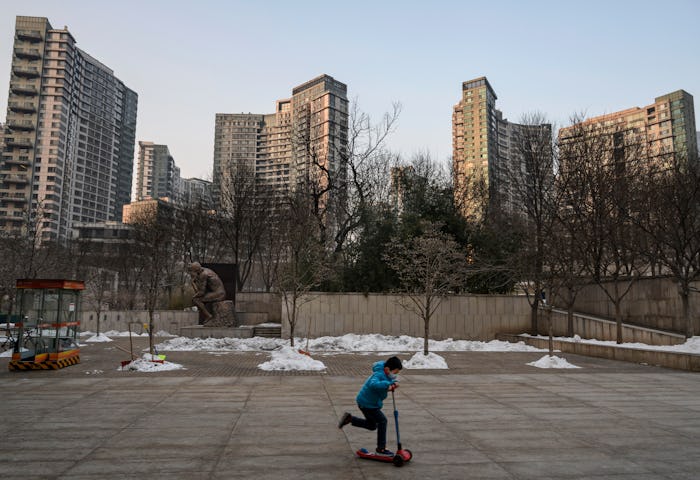News

Japan Is Closing All Schools In Attempt To Limit Spread Of Coronavirus
In an effort to combat the ongoing spread of coronavirus, Japan has moved to close all schools for at least one month. In announcing the unprecedented decision Thursday, Japanese Prime Minister Shinzo Abe characterized it as an attempt to prioritize the health and safety of the nation's children. The nationwide school closure is expected to impact some 13 million children and their families, Bloomberg reported.
"Efforts have been made to prevent the spread of infection among children in each region, and these one or two weeks will be an extremely critical period," Abe said Thursday during a Cabinet meeting, The Japan Times reported. "The government attaches the top priority to the health and safety of children, among others."
At the prime minister's request, all elementary, junior high, and high schools will be temporarily closed effective Monday, according to Reuters. For now, at least, the closure is expected to last until early April, when the nation's spring break holidays typically end. While schools across the country are expected to be closed, working parents may not be without options. According to The Japan Times, Japan's health and welfare ministry has said the closure order will not affect day care centers or other after-school facilities.
A day after the U.S. Centers for Disease Control and Prevention (CDC) warned it's more a matter of when than will the United States will see community spread of the coronavirus, The Los Angeles Times reported on Thursday that health officials are investigating a coronavirus patient who contracted the virus in California after neither traveling abroad or being in contact with someone known to have been sick. The case could be the first instance of community spread of the virus in the United States.
"As more and more countries experience community spread [of the coronavirus], successful containment at our borders becomes harder and harder," CDC spokesperson Benjamin Haynes said in a press call Wednesday. "It's not so much a question of if this will happen anymore but rather more a question of exactly when this will happen and how many people in this country will have severe illness."
Haynes went on to caution that when the United States began experiencing community spread of the virus, the CDC's potential framework for response could include closing schools in impacted communities. Students could instead use what Haynes referred to as "internet-based teleschooling" to continue their education.
Japan's decision to temporarily close schools nationwide comes amid reports from Reuters that the country's number of confirmed coronavirus cases rose from 186 to 200 on Thursday. Among those is a woman in Osaka who is believed to be the first person in Japan to test positive for the coronavirus twice. According to The Guardian, an Osaka woman in her 40s first tested positive for the coronavirus on Jan. 29. After being treated in a hospital, the woman, who worked on a tour bus, recovered and tested negative for the virus on Feb. 6. When the woman developed a sore throat and chest pains earlier this week, she was tested again on Wednesday and confirmed to have the coronavirus for a second time.
While the Osaka woman is the first person in Japan to be diagnosed with the coronavirus twice, she's not the first in the wold. According to Reuters, cases of second positive tests for the virus have previously been reported in China.
Along with closing schools across the country, Bloomberg reported that Japan's prime minister has also ordered the cancelation or postponement of all major sporting and cultural events scheduled for the next two weeks.
If you think you’re showing symptoms of coronavirus, which include fever, shortness of breath, and cough, call your doctor before going to get tested. If you’re anxious about the virus’s spread in your community, visit the CDC for up-to-date information and resources, or seek out mental health support. You can find all our Romper’s parents + coronavirus coverage here, and Bustle’s constantly updated, general “what to know about coronavirus” here.